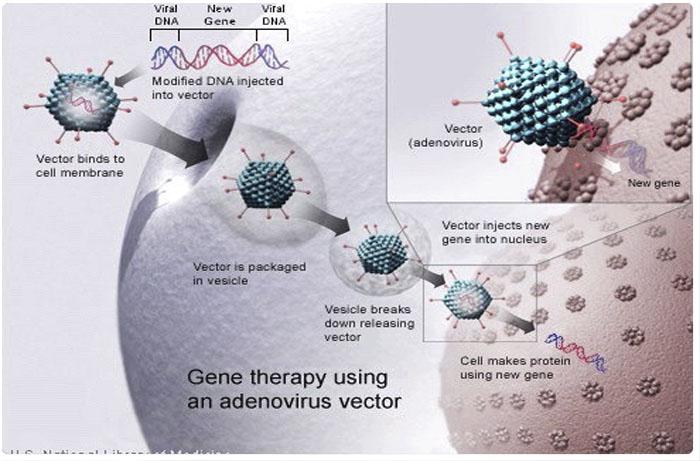News
- SiBiono International …
SiBiono International Gene Therapy Sympo… - Cooperation Signing Ce…
Cooperation Signing Ceremony between SiB… - Ms WeiXu, CEO of SiBio…
Ms WeiXu, CEO of SiBiono coming back fro…
Mechanism
Home - Gendicine - MechanismMechanism of Action:

Gendicine is a gene therapy drug used to treat a wide variety of cancers. It is mainly composed of replication-incompetent recombinant Ad-p53 virus particles, which based on adenovirus serotype 5 and human wild-type p53 tumor suppressor gene, a key housekeeping gene, coding human wild-type P53 protein. In normal cells the expression level of P53 protein is very low, but it will be activated upon DNA damage. The up-regulation of p53 gene expression occurs at the post-translational level, and is achieved through stabilization of the protein. Upon induction, the main outcome of P53 protein activation is either cell cycle arrest or apoptotic cell death. While some tumors do not express p53, others express a mutant form of the P53 protein. p53 gene mutation rate in human tumors is up to 50~70%. Mutant forms of the P53 are not necessarily inactive, and can carry out several characteristic functions that contribute to tumorigenicity.
Post-injection intratumorally Gendicine enters tumor cells through adenovirus infection-mediated endocytosis and its carried exogenous p53 gene begins to express. Over-expressed P53 protein exerts its role of induction of tumor cell cycle arrest or apoptosis depending on the ability of P53 protein to act as sequence specific transcriptional regulator to up-regulate the expression of numerous anti-cancer genes and down-regulate the expression of numerous oncogenes. It can also directly induce the apoptosis of tumor cells without acting as transcriptional regulator to regulate any gene expression. Moreover over-expressed P53 protein acts effectively as a tumor antigen in stimulating human immune cells to assemble in tumor tissues and to selectively kill cancer cells over-expressing the p53 gene (by CTL cells) or to kill those uninfected cancer cells (by NK cells) via bystander effects. Addition to the above, it can down-regulate the expression of vascular endothelial growth factor (VEGF) gene and MDR gene, which involve respectively in the progress and metastasis of tumors or in the multi-drug resistance of tumors. By virtue of lack of DNA damage, exogenous p53 gene will not express in a normal cell, and therefore Gendicine does no harm to it.
Contact us
Add:19,1st Science & Technology Middle Road,Shenzhen Hi-Tech Industry Park(Middle),Shenzhen,P.R.China
Tel:400-6828-666 (086)0755-33065208 0755-33065255
SIBIONO Copyright 粤ICP备14054565号-1












